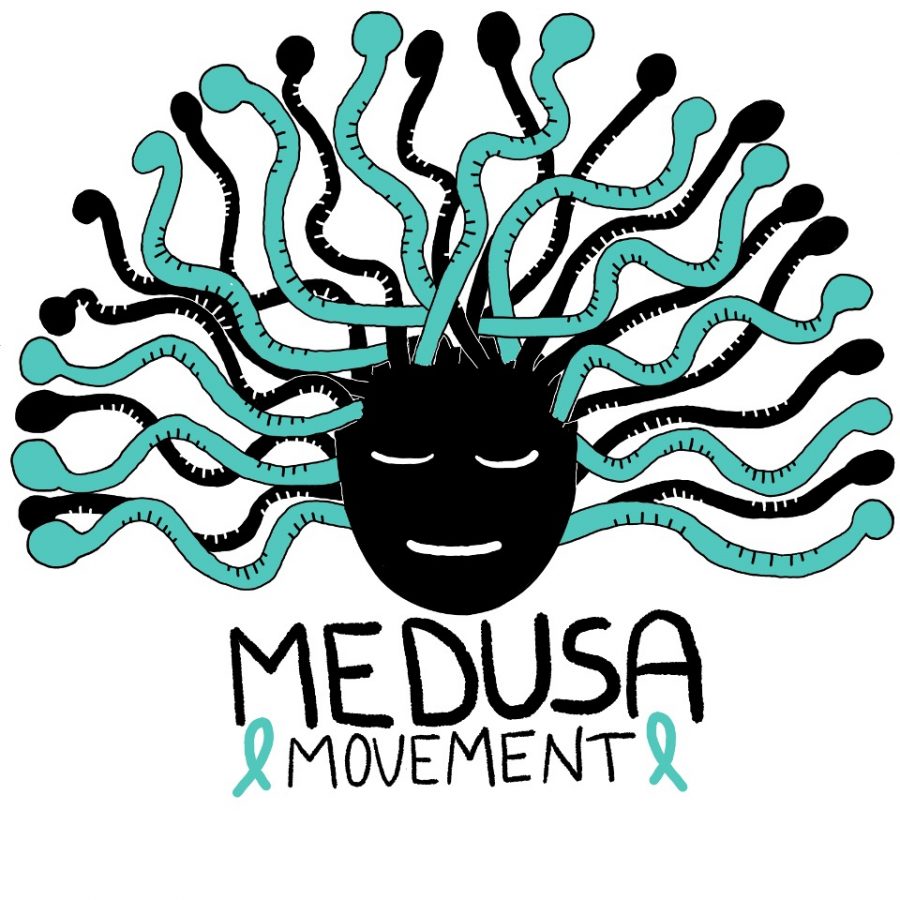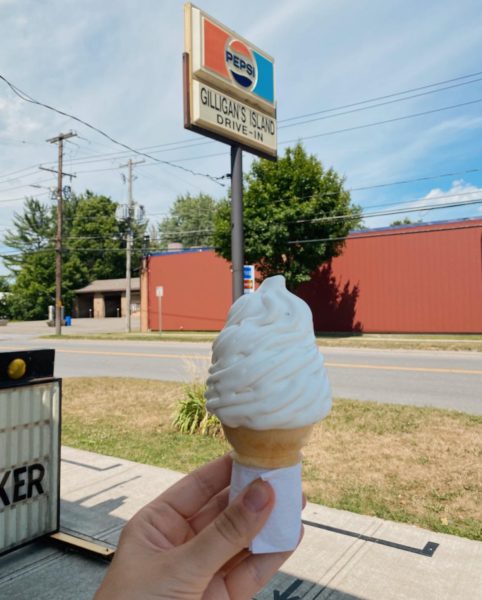The Medusa Movement
The Medusa Movement is a student-led activism group that is committed to making Colgate a more survivor-centric and trauma-informed community. Utilizing an intersectional approach, the Medusa Movement’s work focuses on emboldening survivor empowerment through sharing resources and advocating on behalf of student survivors and allies to University administration.
Sparked by provisions made to Title IX in early August, co-founders and seniors Helen Ferguson, Jailekha Zutshi and Sofia Perez-Dietz saw the need for a heartened response.
“With the new Title IX regulations I thought it would be important to have a student group of allies and survivors who communicate with administration regularly during these changes to make sure they’re always keeping student survivors in mind,” Ferguson, a peace and conflict concentrator, said.
The Title IX changes directly impact Colgate, and the co-founders of the Medusa Movement knew that a potential student-based response could actively unite the community. Perez-Dietz, a senior art and art history concentrator, saw the necessity for student-based action in this situation.
“I feel like there is not a great sense of community between large groups of students on campus. There are smaller, strong communities but not broader connections. Building a network and community of people who are survivor-centric is something that we could really benefit from,” Perez-Dietz said.
Before the Title IX changes were put into effect, the Medusa Movement formulated and sent a letter to the Colgate administration that demanded they file an injunction and refuse to implement the new Title IX regulations. Acquiring more than 700 student signatures, the letter prompted a response from President Brian Casey and Dean Tracey Hucks in which they affirmed their commitment to combating sexual misconduct on campus but explained why they would still accept the Title IX adjustments.
“The response from the letter was what we expected,” Ferguson said. “The good that came out of it was it started a conversation between our movement and the administration and allowed the student body to become much more educated on their Title IX rights and the changes that were happening. It also put pressure on Colgate to choose survivor-centric options wherever they legally could in terms of the new regulations which I feel they have mostly done.”
Isabel Gephart, a junior applied math and neuroscience concentrator, was one of the students that signed the letter to the administration.
“I want to be a part of a campus where survivors are heard, believed and supported individually to the highest extent possible. Anything less is unacceptable,” Gephart said.
While Title IX changes may have led to the movement’s creation, the Medusa Movement’s ascendancy is much farther-reaching. Another focal point of the movement is to improve accessibility to information on survivor support for students. The Medusa Movement works together with other survivor resources on campus such as Shaw Wellness Center, so that information pertinent to survivors is easily available. Ali Altman, a senior concentrator in biology and women’s studies, is involved in both Shaw and the movement.
“I think the Medusa Movement directly complements my work with the Bystander Sexual Violence Program [at Shaw]. As a student-led collective movement, the Medusa Movement works with and around university-mandated services and support,” Altman said. “The Medusa Movement has been very intentional about acknowledging the fact that anyone can be a survivor, and to that extent, that people may have very different relationships with survivorhood and sexual violence because of the identities they hold.”
Survivor centrism is essential to the Medusa Movement. All members are expected to maintain survivor centrism and go through training on what it means to be trauma-informed and survivor-centric.
Zutshi, a concentrator in economics and psychology, has been working at Haven since her first-year and believes that more survivor-centrism on campus could be beneficial. Being a co-founder and co-leader of the Medusa Movement, she feels that the strong educational component and student-base of the movement make its impact distinct at Colgate.
“We are bridging the gaps [and] helping give the student body a voice and access to a group of people that can support them,” she said. If there was a specific need of a survivor that had not been heard, we would help and give them a little more credence.”
With the foundation of survivor centrism, the Medusa Movement has been facilitating new connections on campus, making educational resources more accessible, and advocating administration on students’ behalf. In a time where many challenging conversations are happening, the empowerment driving this movement has given allyship at Colgate a new form.
“We want this movement to be a safe space for survivors to be given transparency and honesty and to be able to ask questions and understand their options and what resources are available to them,” Ferguson said.








